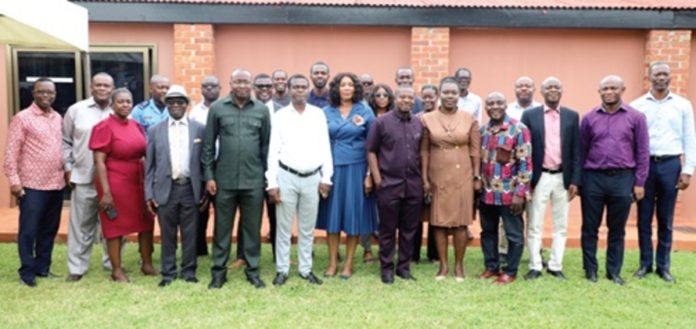The Association of Ghana Industries (AGI) has joined forces with the Ghana Standards Authority (GSA) to establish a market surveillance task force to safeguard the interests of local producers.
The partnership between the two entities is also to promote adherence to quality standards.
The task force would monitor imported products and ensure that they do not undercut locally manufactured goods or use the country as a dumping ground.
The Chief Executive Officer of AGI, Seth Twum-Akwaboah, said this at the annual general meeting of the Tema Chapter of the Association in Tema last Tuesday.
Among issues discussed at the meeting which had industry players as participants were opportunities industries could benefit from under the African Continental Free Trade Agreement (AfCTA), tax exemptions, and the free zones regime.
The Tema regional executive of the Association was also reaffirmed for a new tenure of office.
Mr Eddie Akwetey was retained as Chairman, with Adobea Asiamah-Aboagye as his vice.
Messrs Charles Atuahene, Ben Aniagyei, Andrews Amankwah, and Kate Quartey-Papafio, all retained their positions as treasurer, executive members, and ex-officio members respectively.
Mr Twum-Akwaboah said the influx of unbranded and substandard imports, particularly electric cables, sanitary pads, textiles, and diapers, posed significant challenges to local producers.
Investigations
“Our investigations have revealed that most of these imported products are unbranded and do not meet national quality standards.
“This unfair competition is making it difficult for local producers to thrive, despite their commitment to quality and adherence to standards,” he added.
Mr Twum-Akwaboah also said that the duplicity of taxes had also constrained members who had to pay nearly 52 per cent in taxes.
VAT
Mr Twum-Akwaboah, however, said that the zero Value Added Tax (VAT) regime had been a lifeline for the textile industry in the country, shielding it from the devastating effects of counterfeiting and cheap textile imports.
“If the policy was to be revoked, textile companies in the country would face insurmountable challenges in competing with their unscrupulous counterparts who continue to plagiarise designs, print, and allegedly smuggle them back into the country.
Challenges
The Tema regional chairman, Dr Akwetey, mentioned some of the challenges they faced as rising utility tariffs, a depreciating cedi, and rampant increases in the cost of goods and services, factors which had pushed many companies to the brink of collapse.
He also drew attention to the deplorable state of roads within the Tema industrial enclave and called for improvement of infrastructure to enhance business operations in the area.
ALSO READ:

